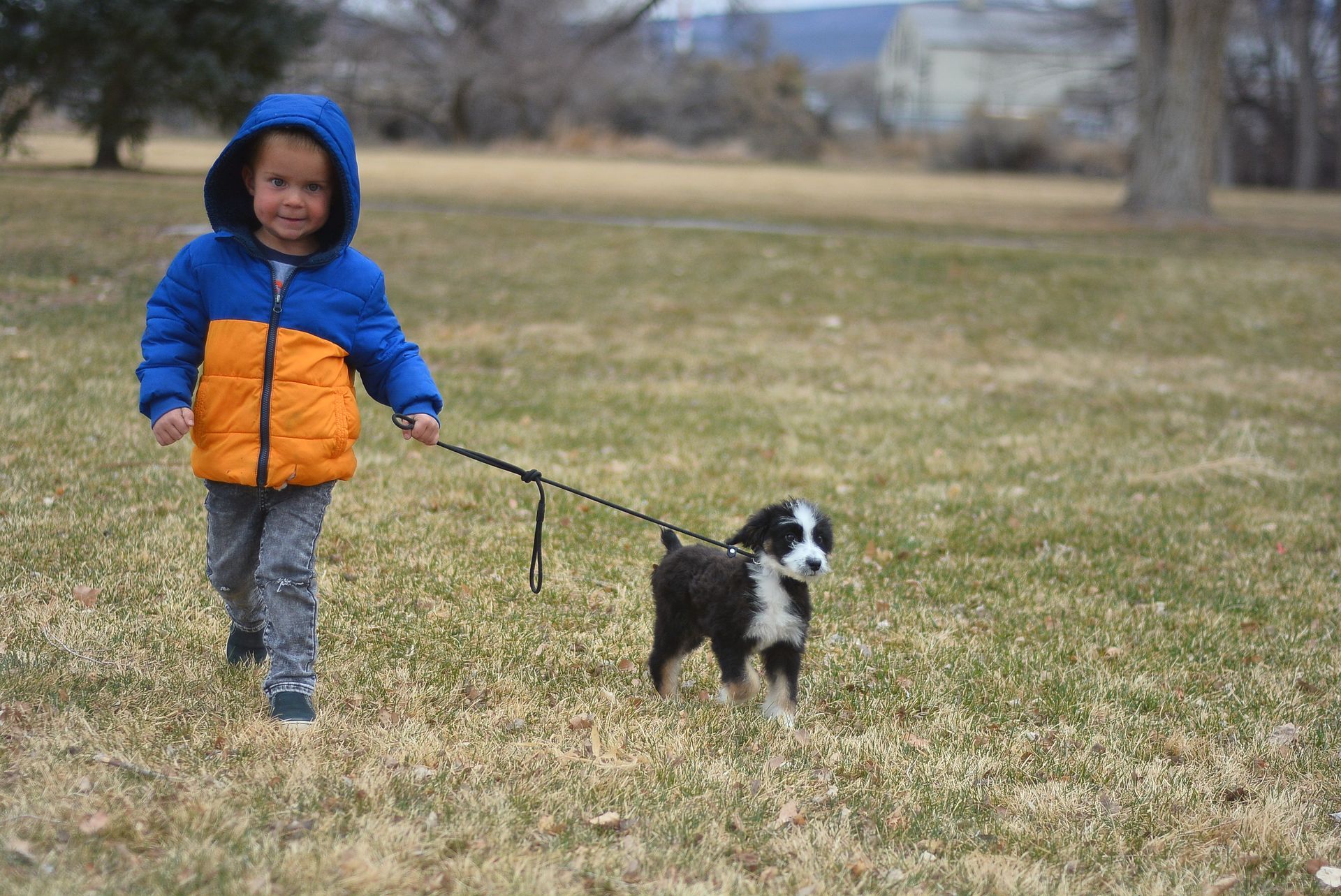Article
Picking Your Puppy: Why Temperament Matters More Than Size or Color
When most families begin looking for a puppy, the first things they notice are usually size and color. “I want a little lap dog,” or “I love that red coat.” While those details are fun, they don’t determine what really matters long-term: temperament and breed traits.

As professional breeders, we want families to succeed with their dogs for the next 10–15 years—not just the first few months. That means looking deeper than appearance. Here are the most important things to consider:
1. Focus on Breed Traits, Not Just Size
Every breed was developed for a purpose, and those instincts still show up in their personalities today. That’s why an Australian Shepherd will never act like a Shichon (Teddy Bear), no matter how small or fluffy.
Here are some examples of the breeds we raise:
- Australian Shepherds – Energetic, intelligent, and happiest when they have a job or activity.
- F1 Aussiedoodles (Aussie × Standard Poodle) – Smart, friendly, family-oriented, and often lower-shedding than purebred Aussies, but still active.
- Standard Poodles – Loyal, athletic, and highly trainable. They thrive on family involvement and structure.
- Teddy Bears (Shichons – Shih Tzu × Bichon Frise) – Sweet, adaptable, and people-focused. A great fit for families wanting a smaller companion.
When choosing a puppy, think about energy level and personality fit before coat color or size.
2. Look at the Parents
One of the strongest indicators of a puppy’s future temperament is the behavior of its parents. Friendly, confident parents usually raise puppies with those same qualities. Even better, if a bloodline has already produced therapy or service dogs, that’s proof those genetics are capable of producing calm, stable-minded dogs.
Research supports this: a large review of studies found that traits like trainability, sociability, and fearfulness are moderately heritable, meaning they can be passed down from parents to puppies (Serpell & Duffy, 2014). In other words, good parents matter.
3. Don’t Rely Too Much on Litter Behavior
It’s natural to try to “read” a puppy by how it acts in the litter. But puppies in a group behave differently than they will one-on-one in your home. A quiet puppy might just be overshadowed by rowdy siblings, while a bold pup might mellow out once it’s getting all your attention.
That’s why it’s more reliable to look at the parents’ temperaments and the breeder’s track record than to choose based only on who runs up first or who seems shy at the breeder’s house.
4. Temperament Testing: Helpful, But Limited
Some buyers ask about temperament testing. While it can offer insights, studies show it has limits.
- A 1997 study of 630 German Shepherd puppies in a service dog program found that puppy temperament testing predicted adult working ability no better than chance (Goddard & Beilharz, 1997).
- A 2013 guide dog program study of 465 puppies also showed low predictability between early testing and adult outcomes (Harvey et al., 2016).
- A long-term Border Collie study found little link between puppy testing at 7 weeks and behavior at 1.5–2 years old—fearful puppies didn’t always become fearful adults (Wilsson & Sundgren, 1998).
Experts agree: temperament testing is only meaningful when done by an outside professional, in a new environment, and at 7+ weeks old. Even then, it’s just one piece of the puzzle.
5. Early Raising Matters
While genetics set the foundation, experiences shape the outcome. Puppies raised with positive handling, early socialization, and exposure to new sounds, people, and places are better prepared to grow into well-adjusted adult dogs.
This is why we put so much emphasis on early development here at the ranch—it gives every puppy the best possible start before they transition into your home.
The Takeaway
It’s easy to fall in love with a certain size or color, but those things won’t determine how well your puppy fits into your family. Instead, ask yourself:
- Does this breed’s temperament fit our lifestyle?
- Do the parents have the type of personality we want in our dog?
- Has the breeder raised the puppies with positive experiences?
Choose based on temperament and fit, and you’ll have not just a beautiful puppy, but the right lifelong companion.
